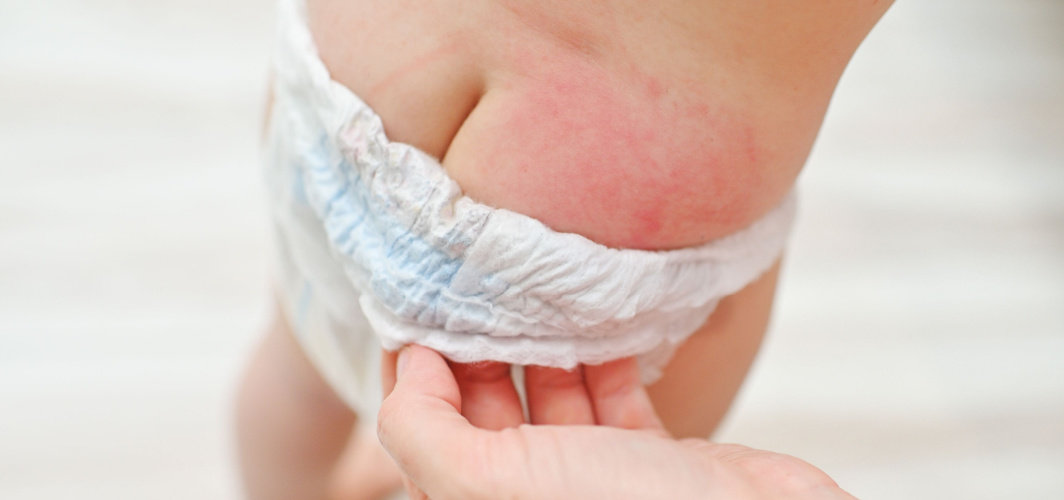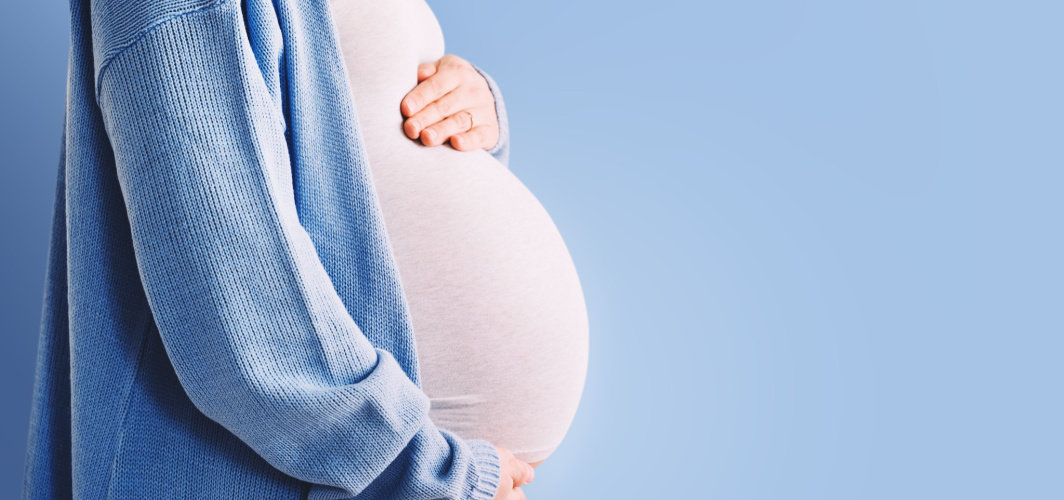- Home
- Blog
- Mom & Baby Care
First 28-Days Newborn Baby Care
Mom & Baby Care
First 28-Days Newborn Baby Care
By Apollo 24|7, Published on- 24 August 2023
Share this article
0
0 like

The first 28 days of your baby's life are crucial and require special care and attention. As a new parent, it's normal to feel overwhelmed and unsure about how to take care of your little one. This period of a baby's life is critical for his/her development and well-being. During this time, as new parents you or someone you know may have many questions and concerns about how to provide the best care for their little bundle of joy. In this blog post, we will provide you with valuable information and guidelines on how to ensure this for your newborn to ensure that your baby remains healthy and happy.
Physical Care of the Newborn
1. Bathing and hygiene
Tips for bathing a newborn safely:
- Sponge baths: Until the umbilical cord stump falls off and the navel area heals completely, it is recommended to give your baby sponge baths.
- Temperature check: Before bathing your baby, make sure the room temperature is warm enough. Also, test the water temperature using your elbow or wrist to ensure it is lukewarm.
- Gentle handling: Use one hand to support their head and neck and the other hand for washing. Avoid any sudden movements that may startle or harm your baby.
- Pat dry: After bathing your baby, gently pat them dry with a soft towel. Pay extra attention to drying between the skin folds to prevent diaper rash.
2. Diapering and diaper rash prevention
Choosing the right diapers and wipes:
- When selecting diapers keep in mind the size, absorbency, material, wetness indicator, and environmental impact.
- Choose wipes that are gentle, fragrance-free, hypoallergenic, and soft.
- Keeping the diaper area clean, changing your baby's diaper frequently, and using a gentle cleanser are some ways to prevent and treat diaper rash.
3. Cord stump care
- Proper cleaning and keeping it dry: Clean the area with warm water and mild soap. Pat dry with a clean cloth or towel and allow air to circulate the stump.
- Signs of infection to watch out for: Signs of infection include sudden fever, irritability, redness, swelling, discharge, or a foul odor.
Feeding the Newborn
Feeding options for your baby include:
1. Breastfeeding
- Benefits of breastfeeding for baby: Breastfeeding provides essential nutrients for growth and development, protects against infections, reduces the risk of allergies and asthma, and enhances brain development for the baby.
- Benefits of breastfeeding for the mother: For the mother, it helps the uterus contract after childbirth, reduces the risk of postpartum bleeding, lowers the risk of breast and ovarian cancer, and aids in postpartum weight loss.
- Establishing a good latch and maintaining milk supply: Your baby's mouth must cover most of the areola. Encourage frequent feeding sessions to establish milk supply.
Common challenges and how to overcome them:
- Sore nipples: Apply lanolin cream or breast milk.
- Engorgement: Apply warm compresses before feeding to stimulate milk flow. Use cold compresses after feeding to reduce swelling.
- Low milk supply: Nurse frequently, and ensure proper hydration and nutrition.
- Mastitis: Rest and drink plenty of fluids. Antibiotics may be needed on prescription.
2. Formula feeding
- Selecting the right formula: Factors such as allergies, digestive issues, or medical conditions can influence your choice.
- Safe preparation and storage of formula milk: Store the opened formula in a cool, dry place and use it within one month. Wash hands thoroughly and use a sterilized bottle.
3. Feeding schedule and cues
- Understanding a baby's hunger and fullness cues: Rooting, sucking on their hands or fingers, making smacking noises, and crying are some hunger cues. Turning their head away from the bottle or breast, spitting out the nipple, or falling asleep can be fullness cues.
- Establishing a feeding routine: In the first few weeks, it's recommended to feed your newborn every 2-3 hours, even if they are asleep. Wake them up gently if needed.
Sleep and Soothing Techniques
1. Newborn sleep patterns and creating a sleep-friendly environment
- Sleep Timings: Newborns have irregular sleep patterns and may sleep for around 16-18 hours a day, waking up every few hours to feed.
- Creating a sleep-friendly environment: The baby's sleep area should be comfortable, and conducive to sleep. Avoid using pillows, blankets, or plush toys in the crib.
2. Safe sleep practices to reduce the risk of Sudden Infant Death Syndrome (SIDS)
- Always place your baby on their back to sleep.
- Avoid bed-sharing and use a separate crib or bassinet instead.
- Keep the sleeping area free from smoke, ensure proper ventilation, and avoid exposure to overheating.
3. Soothing techniques for fussy or colicky babies
- Swaddling, rocking, and gentle movements: Wrapping your baby snugly in a blanket, rhythmically rocking, or swaying can be incredibly soothing as well.
- White noise, pacifiers, and other soothing aids: Background noise replicating the sounds of the womb, such as a fan or a white noise machine, sucking on a pacifier, and gentle massages may soothe your baby.
Developmental Milestones of the Newborn
A baby's milestones can be very exciting for new parents. Here are a few you can watch out for:
1. Physical milestones
- Lifting Head: By around one month, most babies can lift their heads briefly when lying on their stomachs.
- Grasping Objects: Newborns have a reflexive grasp, but by the end of the first month, they can start to intentionally grasp objects placed in their hands.
2. Cognitive milestones
- Tracking Objects: In the first month, babies can follow moving objects with their eyes.
- Recognizing Faces: Newborns will begin to show preferences for familiar faces and may exhibit recognition of their parents or caregivers.
3. Social and emotional milestones
- Smiling: Around six weeks, babies typically start smiling in response to stimuli or when they feel happy.
- Bonding with Caregivers: Babies develop a sense of trust and attachment towards their primary caregivers during this time.
4. When to seek professional help for delayed milestones
Here are some warnings for delayed milestones:
- Eye contact and social smile: Not making eye contact and responding with a social smile by 6-8 weeks could indicate a developmental delay.
- Motor skills: By 4-6 months, if your baby is not able to roll over, reach for objects, etc speak with your pediatrician.
- Language development: If your baby is not showing any signs of vocalization or responding to sound by 2-3 months, consult an expert.
Healthcare and Immunizations of the Newborn
1. Selecting a pediatrician and scheduling regular check-ups
Scheduling regular check-ups with your paediatrician is vital for monitoring your baby's growth and development. These visits allow for early detection and intervention of any potential health issues.
2. Overview of common newborn screenings and tests
Newborn screenings and tests a crucial role in identifying potential health conditions early on.
- Blood tests for metabolic disorders
- Hearing tests
- Heart screenings
3. Recommended immunizations during the first 28 days
The recommended immunizations during the first 28 days include the Hepatitis B vaccine given at birth and subsequent doses at one and six months. The BCG vaccine for tuberculosis and oral polio drops are administered during this period.
Common Concerns and Remedies
1. Infant gas and colic issues
- Tips for relieving gas discomfort: Gentle massages of the baby's tummy, correct latching if breastfeeding, proper burping techniques, and avoiding overfeeding can help relieve gas.
- Importance of burping after feedings: When a baby feeds, they often swallow air along with their milk or formula. If this trapped air is not released, it can lead to discomfort and excessive gas.
2. Treating common newborn skin conditions
- Baby acne: Keep the baby's face clean by gently washing it with warm water and mild baby soap, and pat the baby's face dry with a soft towel after washing.
- Cradle cap: Gently massage the baby's scalp with baby oil or mineral oil, use a soft brush or comb, and wash the baby's hair with mild baby shampoo to remove any oil residue.
3. Recognizing signs of illness in a newborn and when to seek medical attention
Some factors that might indicate a need for medical attention are:
- Temperature above 100.4°F (38°C)
- Difficulty breathing
- Jaundice accompanied by lethargy activity
- Poor feeding
- Fewer wet diaper
Parental Self-Care
Parents must also prioritize their well-being during this critical period.
1. Tips for managing stress and getting enough rest
- Prioritize sleep: Lack of sleep can significantly impact mood, cognitive function, and overall well-being.
- Eat a balanced diet: Proper nutrition is vital for energy levels and overall health.
- Practice self-care activities: Take some time each day to engage in activities that bring you joy and relaxation.
2. Seeking support from partners, family, or support groups
Ask for help from your partner, family members, or friends by delegating household chores and other responsibilities. Joining support groups or connecting with other parents can also provide a valuable outlet.
Conclusion
In conclusion, taking care of a newborn baby can be overwhelming, especially for first-time parents. However, the first 28 days are crucial in establishing a routine and ensuring the well-being of both the baby and the parents. Remember, that as new parents, it's natural to feel anxious and unsure at times. You must trust your instincts and remember that you are the best caregiver for your baby.
Consult Apollo’s Expert Paediatricians
FAQs
Q. How often should I feed my newborn baby?
On average, they feed every 2-3 hours, or whenever they show signs of hunger.
Q. How do I know if my baby is getting enough milk?
Weight gain is a good indicator that your baby is getting enough milk.
Q. How many wet diapers and bowel movements does a healthy baby have in a day?
At least six wet diapers and three bowel movements per day are considered normal.
Q. How can I soothe my fussy baby?
Try different techniques such as swaddling, rocking, singing lullabies, or offering a pacifier to calm your baby.
Q. When should I call the doctor?
When your baby has a fever (temperature of 38°C or higher), shows signs of dehydration (no wet diapers for more than 6 hours), has persistent vomiting, or any other concerning symptoms.
Services
Mom & Baby Care
Leave Comment
Services
Recommended for you

Mom & Baby Care
Nutritional Benefits Of Organic Baby Food
Choosing the right food for your child is a crucial decision. Explore this complete buying guide to learn more about organic baby food and get expert tips on choosing the best options for your little one.

Mom & Baby Care
Diaper Rash: Know How To Deal With It
Diaper rash is an extremely common problem, especially amongst infants who wear diapers regularly. Typically manifesting as red, uncomfortable patches of inflamed skin, this condition can be easily treated at home.

Mom & Baby Care
Most Googled Questions On Pregnancy Answered By An Apollo Expert
First-time mothers can have several doubts related to the safety and growth of the baby. Read on to know the answers to some of your pregnancy-related queries.
Subscribe
Sign up for our free Health Library Daily Newsletter
Get doctor-approved health tips, news, and more.

